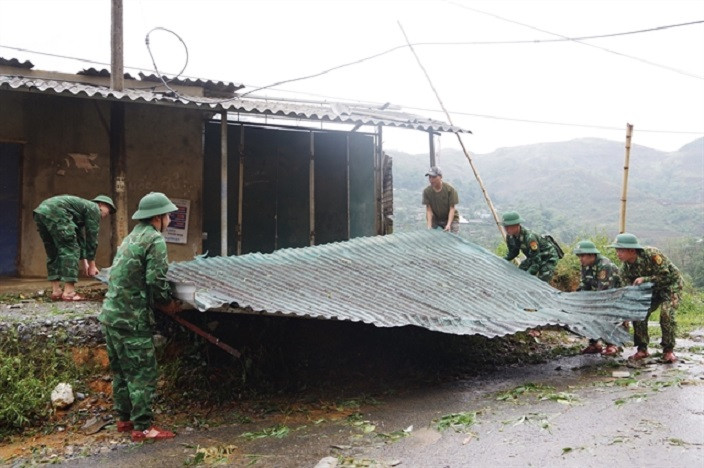
That was the message from Hoàng Đức Cường, Deputy Director of the Vietnam Meteorological and Hydrological Administration, at the conference on disaster prevention and rescue on Friday.
He said El Niño is weakening and is expected to transition into a La Niña in the last months of 2024. The change is predicted to trigger extreme weather in Việt Nam, a scenario with similar impacts to the ENSO pattern in 2020.
The first four months of 2024 saw average temperatures 0.5 to 1.5°C above normal nationwide, peaking at 3.1 to 3.6°C hotter than usual in the Northern and North-Central regions during April.
At 110 of the 186 monitoring stations, record high temperatures were logged, including 44°C in Đông Hà (Quảng Trị Province) on April 28, the hottest ever recorded in the province since 1976.
Through early May, 72 hailstorms occurred across the country, with Nghệ An Province hit 11 times, the highest nationally. Hailstorms, thunderstorms and strong winds caused significant economic and environmental damage nationwide.
Water flows are running 30 to 60 per cent below normal levels in northern rivers and reservoirs, with the Thao and Lô rivers down 50 to 60 per cent.
Saltwater intrusion arrived earlier and more severely than usual in the Mekong Delta during the 2023-24 dry season, causing freshwater shortages in some coastal provinces.
To prepare for potential extreme events linked to El Niño, the Ministry of Natural Resources and Environment instructed the meteorological body to closely monitor weather patterns and water sources to provide early forecasts to the public.
Looking ahead, Cường forecasts two to three more widespread heatwaves in the Northern and Central Regions in late May. The Central Highlands and Southern Region could see another hot spell soon, followed by seasonal rains.
From June through year-end, heatwaves are forecast to intensify and expand across the north, potentially becoming extreme in July before easing in late August in the north and further south in September.
Prolonged drought conditions are also possible in the central provinces from May to August, notably in Quảng Trị and Bình Thuận.
Việt Nam should brace for 11 to 13 tropical storms over the East Sea (internationally known as the South China Sea) this year, likely concentrated between September and November.
Heavy rains are expected in the Northern region from July to September and in the Central region from September to November. With climate change, heavy downpours may occur more frequently, heightening flash floods and landslide risks in mountainous areas.
Of particular concern is the potential for the La Niña to bring repeated heavy rain episodes to the Central Region in late 2024. High tides peaking more than 4.3m could flood low-lying coastal areas between September and December.
The outlook suggests the first half of the rainy season will impact the Northern and Central regions and the Central Highlands while the La Niña could trigger more typhoons in the last months of 2024.
To enhance extreme weather monitoring and information sharing, the meteorological body plans to leverage new technology to produce more detailed forecasting, expand mobile apps and social media channels and recommend reservoir operating procedures to better adapt to climate change impacts. — VNS